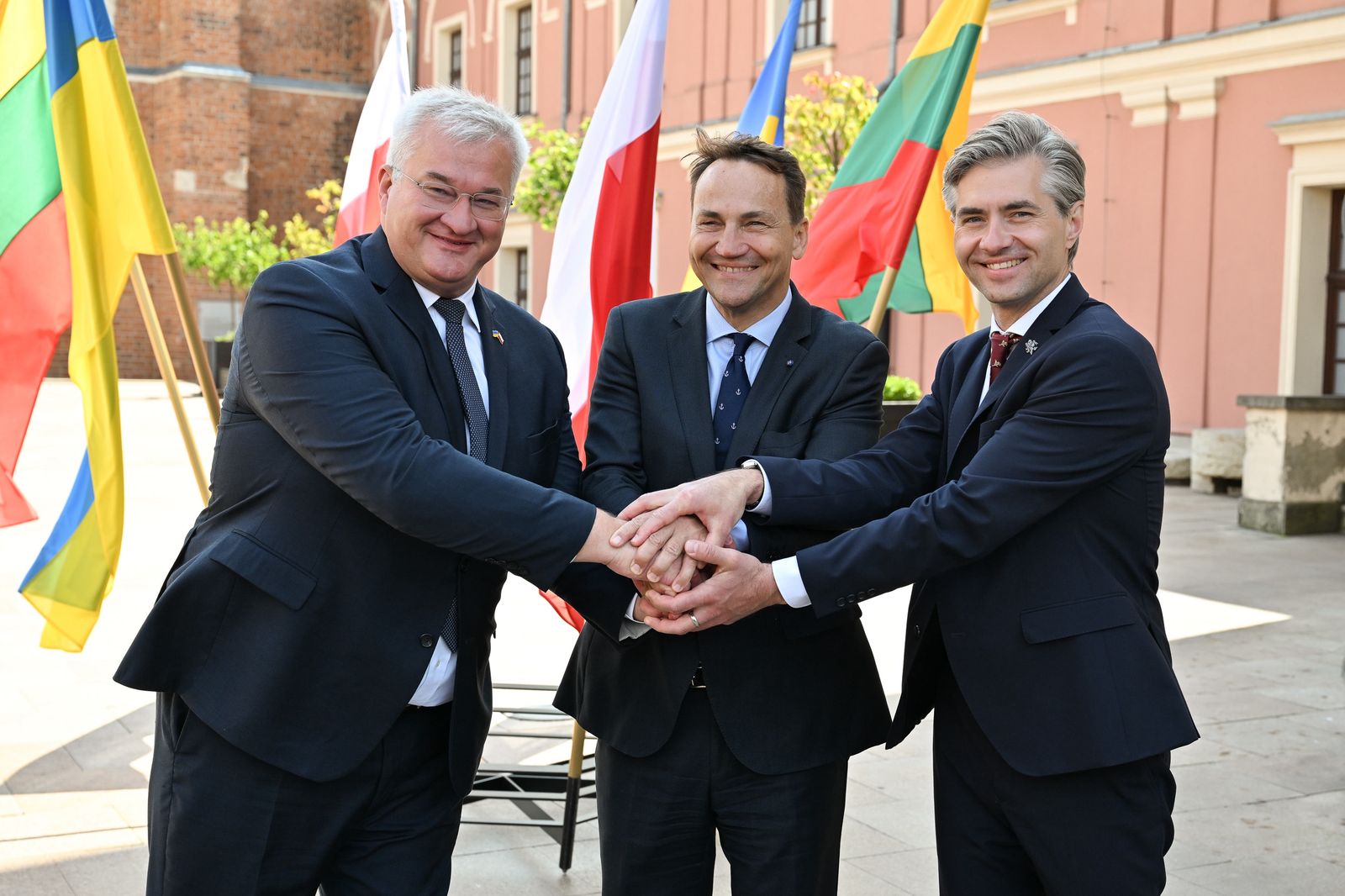Lublin Triangle Marks 5 Years with Strategic Moves Against Russian Aggression

In Lublin the Foreign Ministers of Ukraine, Lithuania, and Poland convened to mark the 5th anniversary of the Lublin Triangle — a political and security alliance that has evolved into a cornerstone of Eastern European cooperation, The Gaze reports, citing the MFA of Ukraine.
Hosted on Wednesday, July 16, the high-level meeting brought together Ukraine’s Foreign Minister Andrii Sybiha, alongside his Lithuanian and Polish counterparts, at a moment of both strategic reflection and future-focused resolve.
Speaking against the backdrop of Russia’s escalating aggression, Sybiha informed his colleagues of the intensifying air terror campaign against Ukraine’s civilian population.
“Every night, hundreds of drones and missiles swarm over Ukraine in coordinated attacks targeting peaceful cities and communities. Last night, cities including Vinnytsia suffered from such cowardly strikes,” he stated.
He also reported the battlefield use of prohibited chemical agents by Russian forces — with Ukraine already collecting and analyzing conclusive evidence.
The ministers unanimously reaffirmed the indivisible security of Ukraine, Lithuania, Poland, and the broader European space. A key theme was the importance of enhancing defense cooperation, including greater investment in Ukraine’s defense-industrial complex and transatlantic pressure on Russia.
Minister Sybiha highlighted the Lithuanian-Polish-Ukrainian Brigade (LITPOLUKRBRIG), celebrating its 10th anniversary this year, as a “unique example” of trilateral military collaboration — pivotal in integrating NATO standards into Ukraine’s Armed Forces.
A new initiative was launched: a Lublin Triangle Forum of Historians — designed to foster joint research and dialogue on complex historical issues. “We must seek understanding and defuse Moscow’s attempts to undermine our unity through historical manipulation,” Sybiha emphasized.
In a strategic move to stimulate regional development, the ministers discussed expanding the Lublin Triangle Economic Forum and increasing investment in the defense industries of all three nations.
Projects discussed included improved rail links between capitals, enhanced energy security via Ukraine’s underground gas storage facilities (the largest in Europe), and diversified energy supply routes.
The ministers voiced strong support for Ukraine’s EU accession. Sybiha stressed that Hungary’s veto lacks substantive grounds and that “political voluntarism must not block EU enlargement.”
Support for Ukraine’s NATO path was also reaffirmed, with all parties agreeing that Kyiv’s eventual membership is vital for the security architecture of the continent.
The joint statement condemned Russia’s continued war crimes, including indiscriminate attacks on civilians, illegal deportation of Ukrainian children, torture of prisoners of war, and destruction of cultural heritage.
The ministers reiterated support for prosecuting these crimes, welcomed the establishment of the Special Tribunal for the Crime of Aggression, and urged full use of immobilized Russian assets for Ukraine’s reconstruction. They further called for intensified sanctions targeting Russian and Belarusian actors.
The ministers also endorsed Sybiha’s proposal to hold the next Presidential-level Lublin Triangle summit in Kyiv — a powerful gesture of unity with the war-torn capital.
Read more on The Gaze: New Sanctions against Russia – How they Reduce its Ability to Wage War